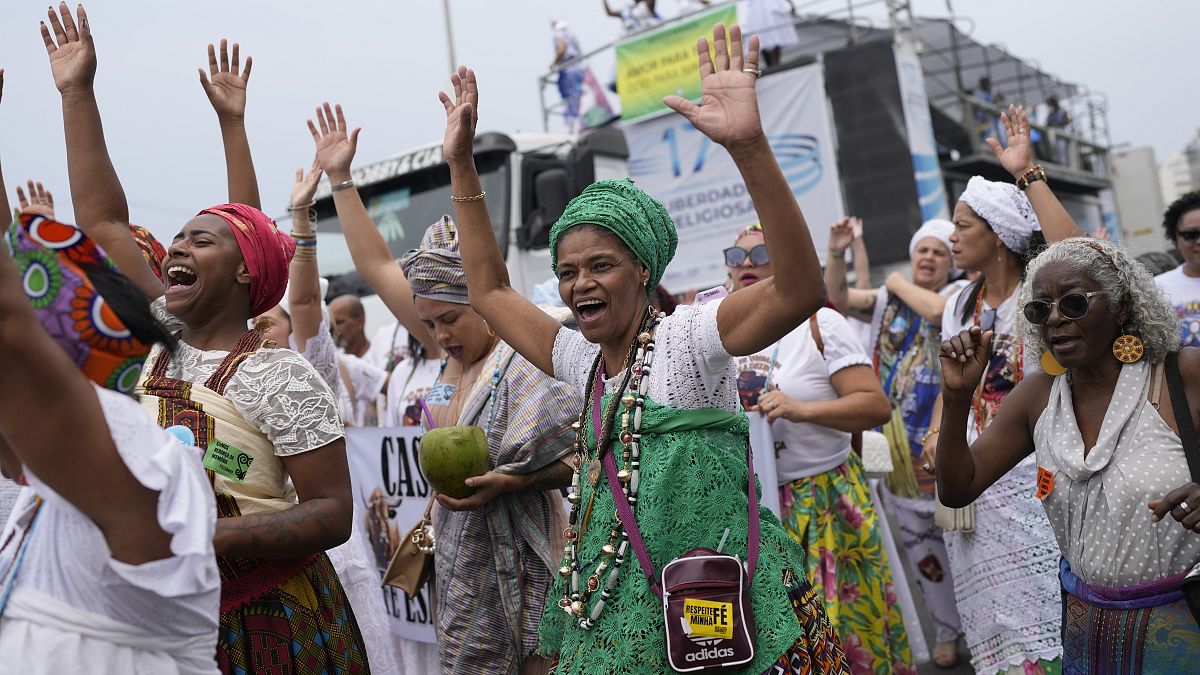In a recent celebration in Brazil, participants came together with banners, dances, and rituals to showcase the country’s rich religious diversity. However, despite the constitutional protection of religious freedom in Brazil, there has been a concerning rise in intolerance towards Afro-Brazilian religions, especially with the emergence of neo-Pentecostal churches, particularly in Rio. This troubling trend has resulted in instances of verbal abuse, temple destruction, and forced expulsions of practitioners of Afro-Brazilian religions.
From 2018 to 2023, the number of complaints related to religious intolerance in Brazil has surged by a staggering 140.3%. This alarming increase is indicative of the growing tensions between different religious groups within the country. Perpetrators of such acts of intolerance could potentially face criminal charges, including up to five years in prison and fines, under Brazilian law. It is crucial for authorities to address these issues and ensure the protection of religious freedom for all individuals in Brazil.
The rise of neo-Pentecostal churches in Brazil, particularly in Rio, has been accompanied by a disturbing increase in intolerance towards Afro-Brazilian religions. This has manifested in various forms, including verbal harassment, destruction of temples, and even forced expulsions of practitioners. These actions not only violate the fundamental rights of individuals to practice their faith freely but also contribute to social tensions and division within the community.
The recent surge in complaints related to religious intolerance in Brazil underscores the urgent need for measures to address this issue. Authorities must take proactive steps to investigate and prosecute perpetrators of such acts and ensure that individuals are able to practice their religion without fear of discrimination or violence. It is essential to promote dialogue and understanding between different religious communities to foster mutual respect and tolerance.
Brazil’s rich cultural heritage is reflected in its diverse religious traditions, including Afro-Brazilian religions that have been an integral part of the country’s history. The recent instances of intolerance towards these religions are not only a violation of individual rights but also a threat to the country’s cultural and religious diversity. It is imperative for society as a whole to come together to protect and preserve the freedom of religion for all individuals in Brazil.
In conclusion, the celebration of Brazil’s religious diversity should be a reminder of the importance of preserving and protecting religious freedom for all individuals in the country. The rise of intolerance towards Afro-Brazilian religions is a troubling trend that must be addressed through concerted efforts by authorities, religious leaders, and civil society. By promoting tolerance, understanding, and dialogue, Brazil can uphold its commitment to religious freedom and ensure a harmonious coexistence among its diverse religious communities.











